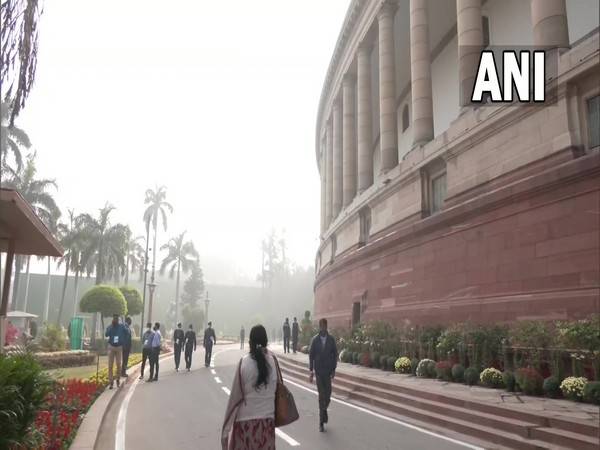The economy entered a downturn at the end of 2023, official figures showed last week. However, the Bank of England signalled that there was unlikely to be an imminent interest rate cut…reports Asian Lite News
The UK recession may already be over and there are now “distinct signs of an upturn”, the Bank of England’s governor has said. By historical standards “this is the weakest recession by a long way,” Andrew Bailey told MPs.
The UK economy entered a downturn at the end of 2023, official figures showed last week. Nevertheless, the Bank signalled on Tuesday that there was unlikely to be an imminent interest rate cut.
On Friday, the Office for National Statistics said the economy shrank by 0.3% between October and December. It had already contracted in the period between July and September. The UK is considered to be in recession if it fails to grow for two successive quarters.
But Ben Broadbent, deputy governor of the Bank of England, who answered MPs’ questions alongside Bailey, said this definition of a recession was “unhelpful”, and pointed out that other countries, such as the US, calculate it differently.
MPs repeatedly pressed Bank officials on why they were not already cutting interest rates. Conservative MP John Baron said the economy was “flashing red”.
But the Bank said it was waiting for further evidence in areas such as wage growth and the number of job vacancies to show that inflation – which measures the pace of price rises – had turned decisively.
Bailey pointed to the possibility that inflation is likely to be helped by a fall in energy prices. Ofgem, the energy regulator, is expected on Friday to lower the price cap on UK electricity and gas bills from April.
But Bailey said while that is likely to bring overall inflation down to the Bank of England’s 2% target during the spring, over the year it could rise again. “We’re beginning to see things going in the right direction,” said he said. “We need to see more evidence of that… and that’s what will shape my vote going forwards.”
Broadbent said interest rate cuts were possible this year. “In my view that is the more likely direction in which Bank rate is likely to move,” he said. “But even if that proves to be the case, the timing of any adjustment can only depend on the actual evolution of the economic data.”
Hints at interest rate cut
Prime Minister Rishi Sunak was slammed after the Office for National Statistics said the economy shrank by 0.3 per cent at the end of last year. Shadow chancellor Rachel Reeves said it left his pledge to grow the economy “in tatters”.
Chancellor Jeremy Hunt blamed efforts to tackle high inflation and the recent run of interest rate rises, but maintained that the economy was turning a corner.
“There are signs the British economy is turning a corner; forecasters agree that growth will strengthen over the next few years, wages are rising faster than prices, mortgage rates are down and unemployment remains low,” Hunt said in a statement.
“Although times are still tough for many families, we must stick to the plan – cutting taxes on work and business to build a stronger economy.”
The revelation the UK is in recession led to increased pressure on the Bank of England to cut interest rates.
The New Economics Foundation think tank said it was “no surprise” the UK had fallen into recession, “given this government’s mismanagement of the economy and the Bank of England’s panicked interest rate rises”.
But now the governor of the Bank of England has hinted that it may cut interest rates sooner as inflation does not need to reach the 2 per cent before they do so.
Bailey told the the treasury committee that although “the quantity side of the labour market remains tight”, the Bank of England will consider progress in pay, labour market and services before making the decision, “But it’s the progress of those three things. We don’t need inflation to come back to target before we cut interest rates, I must be very clear on that, that’s not necessary. We’ll be looking for sustained progress on those things to reach that judgment about how long this period of restrictive policy needs to be.”
Along with the UK and Japan, Ireland and Finland also went into technical recessions in the fourth quarter. Ireland registered a quarter-on-quarter GDP contraction of 0.7 per cent and 1.9 per cent in Q3 and Q4 respectively. On the other hand, Finland’s GDP shrank by 0.4 per cent and 0.9 per cent in the same periods.
With the fourth quarter GDP results of several countries yet to be released, one can’t be certain if the above-mentioned four countries alone will face recession. At least 14 countries witnessed a shrinking GDP during the July-September quarter. The 10 other countries — Denmark, Luxembourg, Moldova, Estonia, Ecuador, Bahrain, Iceland, South Africa, Canada, and New Zealand — are still at risk of slipping into recession. Denmark, Luxembourg, Moldova, and Estonia were already in recession by the third quarter.
ALSO READ-UK Slides into Recession Ahead of General Election, GDP Shrinks














